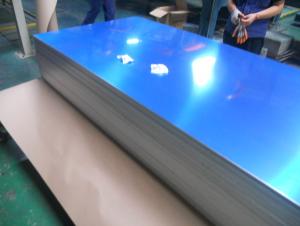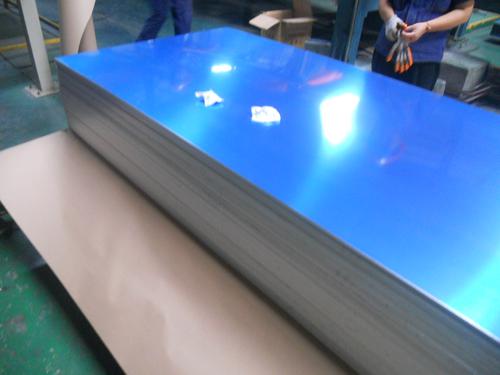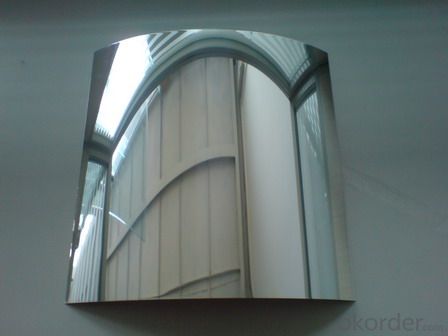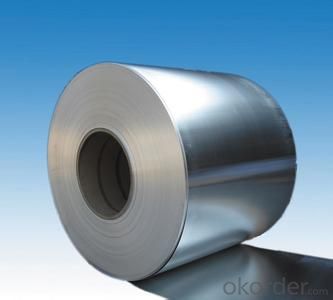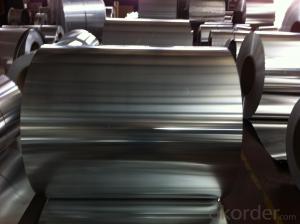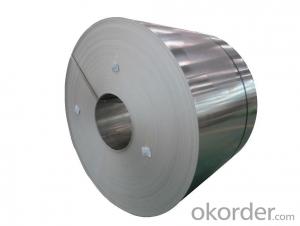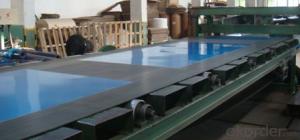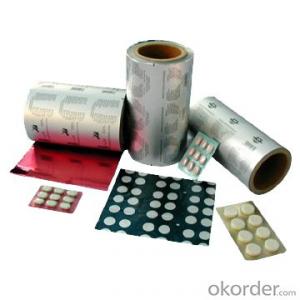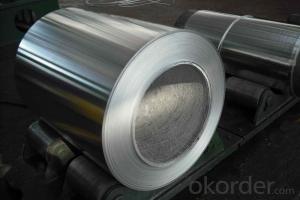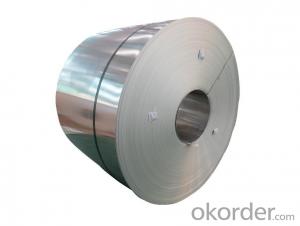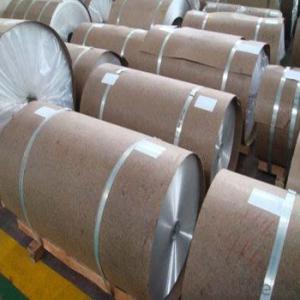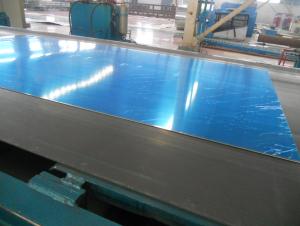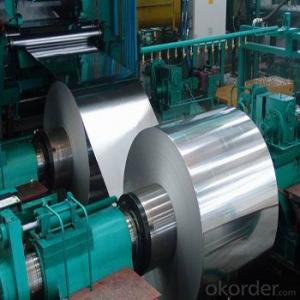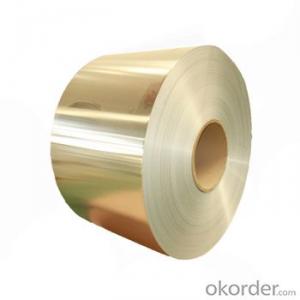Punched Continuous Casting Aluminium Coils for Rolling
- Loading Port:
- Shanghai
- Payment Terms:
- TT OR LC
- Min Order Qty:
- 5 m.t.
- Supply Capability:
- 50000 m.t./month
OKorder Service Pledge
OKorder Financial Service
You Might Also Like
Specification
1.Structure of Continuous Casting Aluminium Coils for Rolling
Continuous Casting Aluminium Coils for Rolling is one semi-finished aluminium material. This strip can be rolled down to aluminium coil,sheet,circle ect. The alloy AA1050 is widly used in building, industry ect. Its weight is much lower than steel. So many customers choosed aluminium material instead of steel.
2. Main features of Continuous Casting Aluminium Coils for Rolling
a.Competitive price---We have our own mills and can produce mill finished aluminium coils, so we can control the production cost better.
b.Professional after-sale service---We have more than 15 years exportation experience and you need not worry about the exporation problems.
c.Fast delivery time---We can control the delivery time within 35 days.
3. Image
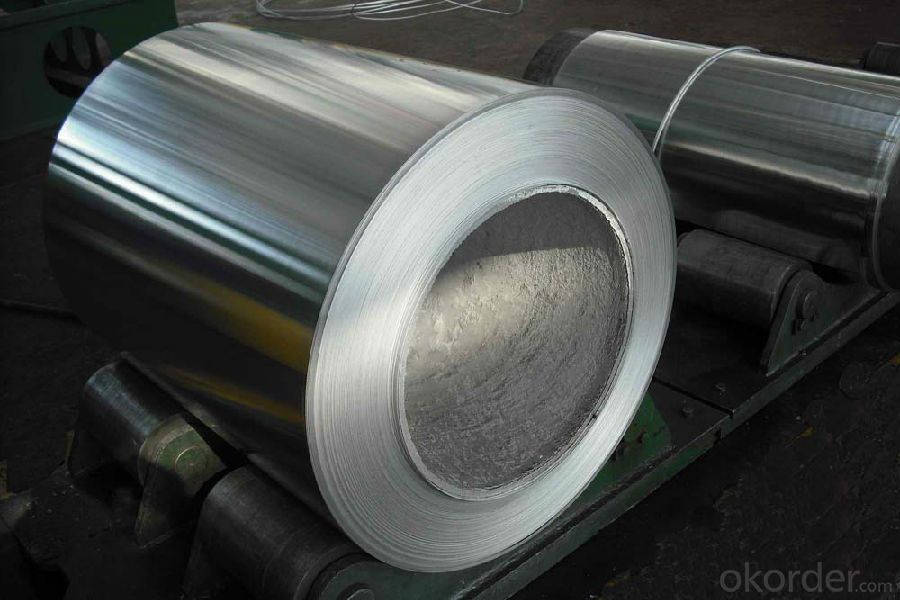
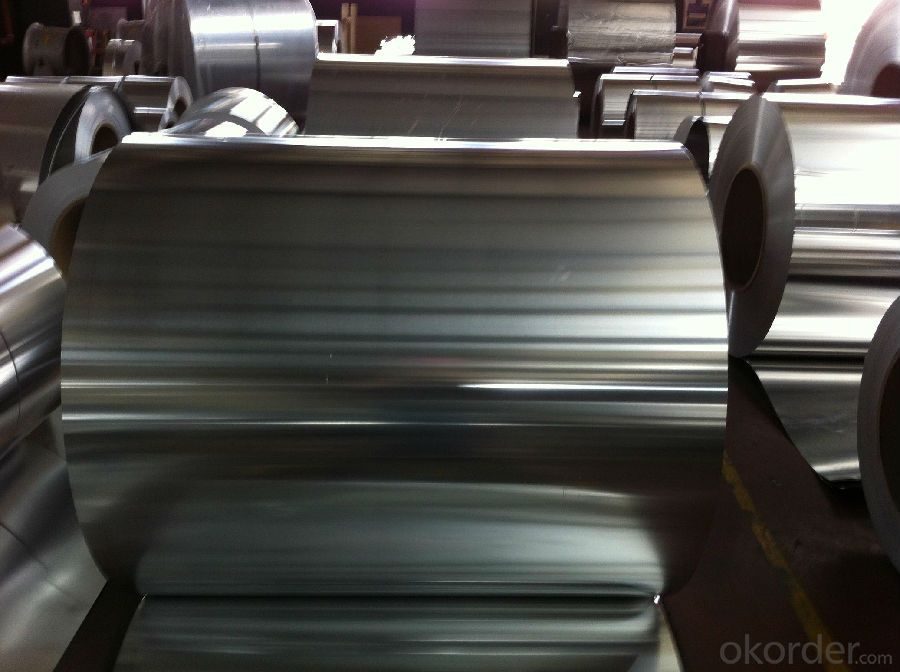
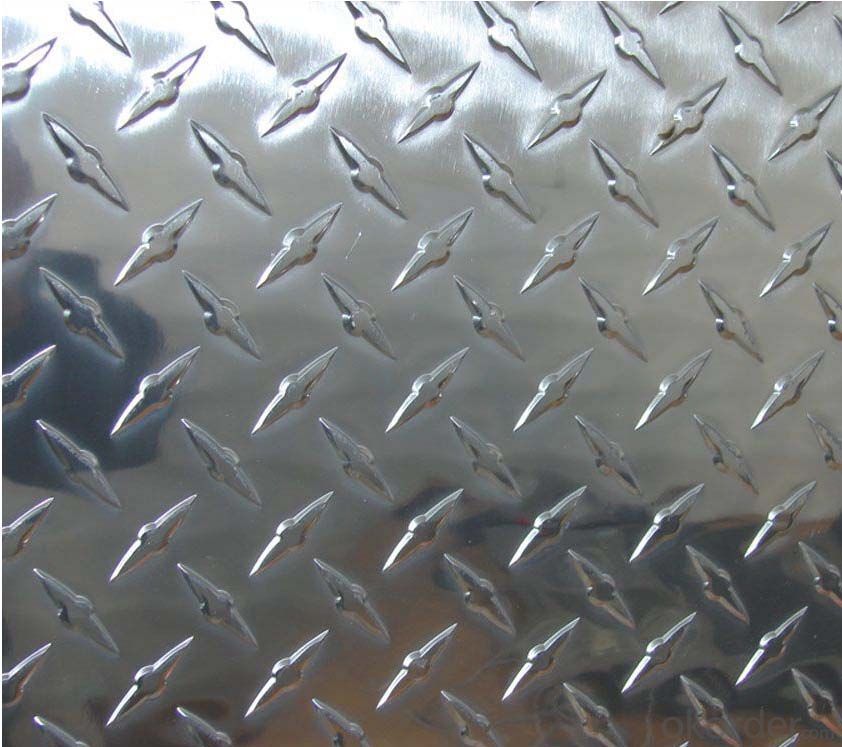
4. Product Specification
| ALLOY | TEMPER | ROLLING | THICKNESS | WIDTH |
| AA1050 | H14 | CONTINUOUS CASTING | 0.2MM-3MM | 1000MM-1500MM |
5.FAQ:
What is the quality standard?
---Usually our standard is GB3880-2006
What is the largest width?
---It is 2300mm
What is the MOQ?
---Usually we can accept 80 tons.
- Q: What are the safety considerations when handling and working with aluminum sheets?
- There are several safety factors to consider when dealing with aluminum sheets. Firstly, it is essential to wear suitable personal protective equipment (PPE) such as safety glasses and gloves. These items will shield the eyes from flying debris and the hands from cuts or sharp edges. Secondly, it is crucial to handle aluminum sheets with caution due to their sharpness. To minimize the risk of injury, it is advisable to use gloves and other tools when lifting or moving the sheets. Additionally, it is important to be mindful of the weight to avoid straining or injuring the back. Fire hazards are another aspect to consider. Aluminum is highly flammable, particularly in the form of dust or shavings. Therefore, it is vital to maintain a clean work area, free from loose aluminum debris. Having appropriate fire extinguishing equipment nearby and being aware of emergency exit locations is also recommended. Moreover, it is important to use proper techniques and tools when cutting or shaping aluminum sheets. Using the correct saws or shears can reduce the risk of injury. Securing the sheets adequately is also necessary to prevent any movement or falling during the cutting process. Lastly, being aware of potential health hazards associated with aluminum is crucial. Inhaling aluminum dust or fumes can be harmful, so it is important to work in a well-ventilated area or use respiratory protection when necessary. In conclusion, the safety considerations for handling and working with aluminum sheets include wearing appropriate PPE, handling the sheets with care, minimizing fire hazards, using proper cutting techniques and tools, and being aware of potential health hazards. By following these precautions, the risks associated with working with aluminum sheets can be minimized, ensuring a safe working environment.
- Q: What are the different types of surface treatments for aluminum sheets in the marine industry?
- Some of the different types of surface treatments for aluminum sheets in the marine industry include anodizing, powder coating, chromate conversion coating, and painting.
- Q: Can aluminum sheets be an alternative to ceramics in certain applications?
- Yes, aluminum sheets can be an alternative to ceramics in certain applications. Aluminum sheets offer several advantages over ceramics, such as being lighter in weight, more cost-effective, and easier to shape and fabricate. They also have excellent thermal and electrical conductivity properties, making them suitable for applications where heat dissipation or electrical conduction is required. Additionally, aluminum sheets can withstand high temperatures and have good corrosion resistance. However, ceramics still have their own unique properties and strengths, such as higher hardness, better chemical resistance, and superior insulation capabilities, which might be more suitable for certain specific applications. Therefore, the suitability of aluminum sheets as an alternative to ceramics would depend on the specific requirements and conditions of the application in question.
- Q: What is the difference between aluminum plate AL1050 and AL1060?
- 1050 and 1060 belong to an aluminum plate, that is, pure aluminum plate, the difference is that the content of aluminum is different. 1050 aluminum content 99.95%, 1060 Aluminum Content 99.60%, material is very close, often can replace the use, the current use is more than 1060 Aluminum plate.
- Q: What are the thermal conductivity properties of aluminum sheets?
- Aluminum sheets have high thermal conductivity properties, meaning they are excellent conductors of heat. This allows them to efficiently transfer heat and distribute it evenly across their surface.
- Q: Can aluminum sheet be used for solar panels?
- Yes, aluminum sheet can be used for solar panels. Aluminum is a commonly used material in the construction of solar panels due to its combination of strength, durability, and lightweight properties. It is often used as the frame or mounting structure for the panels, providing support and stability. Additionally, aluminum is highly resistant to corrosion, which is important for solar panels that are exposed to the elements. Furthermore, aluminum is a highly conductive material, allowing for efficient transfer of electricity generated by the solar cells within the panel. Overall, using aluminum sheet in the construction of solar panels helps enhance their performance, longevity, and overall efficiency.
- Q: What is the typical thermal expansion coefficient of aluminum sheets?
- The typical thermal expansion coefficient of aluminum sheets is approximately 22.2 x 10^-6 per degree Celsius.
- Q: Can 101 aluminum sheets be used in food storage containers?
- Using 101 aluminum sheets in food storage containers is not recommended. These aluminum sheets, often referred to as 101 aluminum, are not suitable for storing food as they are not made from food-grade materials. Typically, they are employed in industrial settings like roofing, construction, and electrical wiring. To guarantee the safety and quality of stored food, it is essential to use containers crafted from food-grade materials such as stainless steel, glass, or food-grade plastic.
- Q: This question asks for the common types of aluminum sheet windows and doors that are available in the market.
- <p>Common types of aluminum sheet windows and doors in the market include sliding windows, casement windows, fixed windows, and awning windows. For doors, there are sliding doors, swing doors, folding doors, and automatic doors. Each type has specific features and applications, such as sliding windows being space-saving and easy to operate, while casement windows offer better ventilation. Sliding doors are popular for their smooth operation and minimal space requirement, and swing doors are traditional and widely used for their durability and security. These aluminum products are valued for their strength, durability, and low maintenance requirements.</p>
- Q: Are aluminum sheets suitable for electronic enclosures?
- Certainly, aluminum sheets are a fitting choice for electronic enclosures. Aluminum is extensively employed in the production of these enclosures owing to its exceptional characteristics. It possesses the advantage of being both lightweight and sturdy, ensuring optimal protection for electronic components. Moreover, aluminum exhibits excellent thermal conductivity, effectively dissipating heat generated by electronic devices. Additionally, it is non-magnetic and non-sparking, thereby guaranteeing safety and preventing interference with electronic signals. Furthermore, aluminum can be easily molded, machined, and finished, providing opportunities for customization and aesthetic appeal. All in all, aluminum sheets offer a dependable and cost-efficient solution for electronic enclosures.
Send your message to us
Punched Continuous Casting Aluminium Coils for Rolling
- Loading Port:
- Shanghai
- Payment Terms:
- TT OR LC
- Min Order Qty:
- 5 m.t.
- Supply Capability:
- 50000 m.t./month
OKorder Service Pledge
OKorder Financial Service
Similar products
Hot products
Hot Searches
Related keywords
